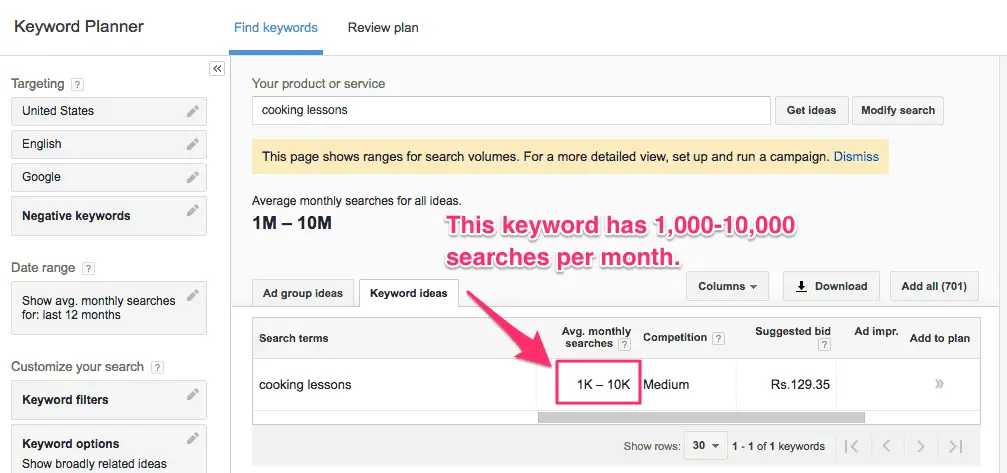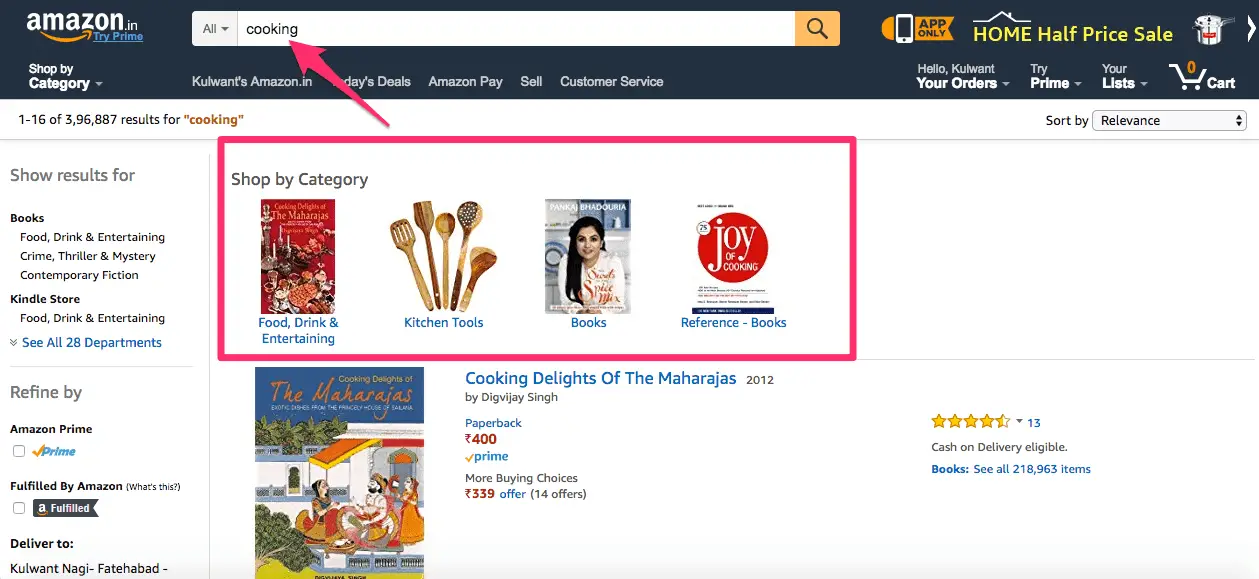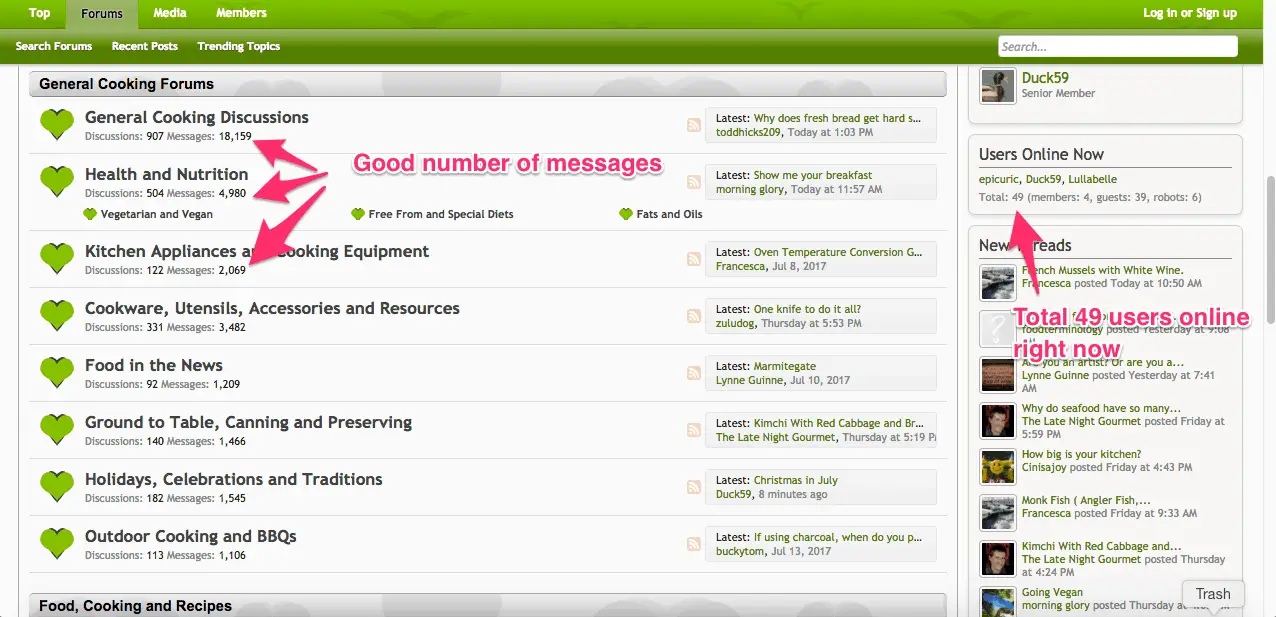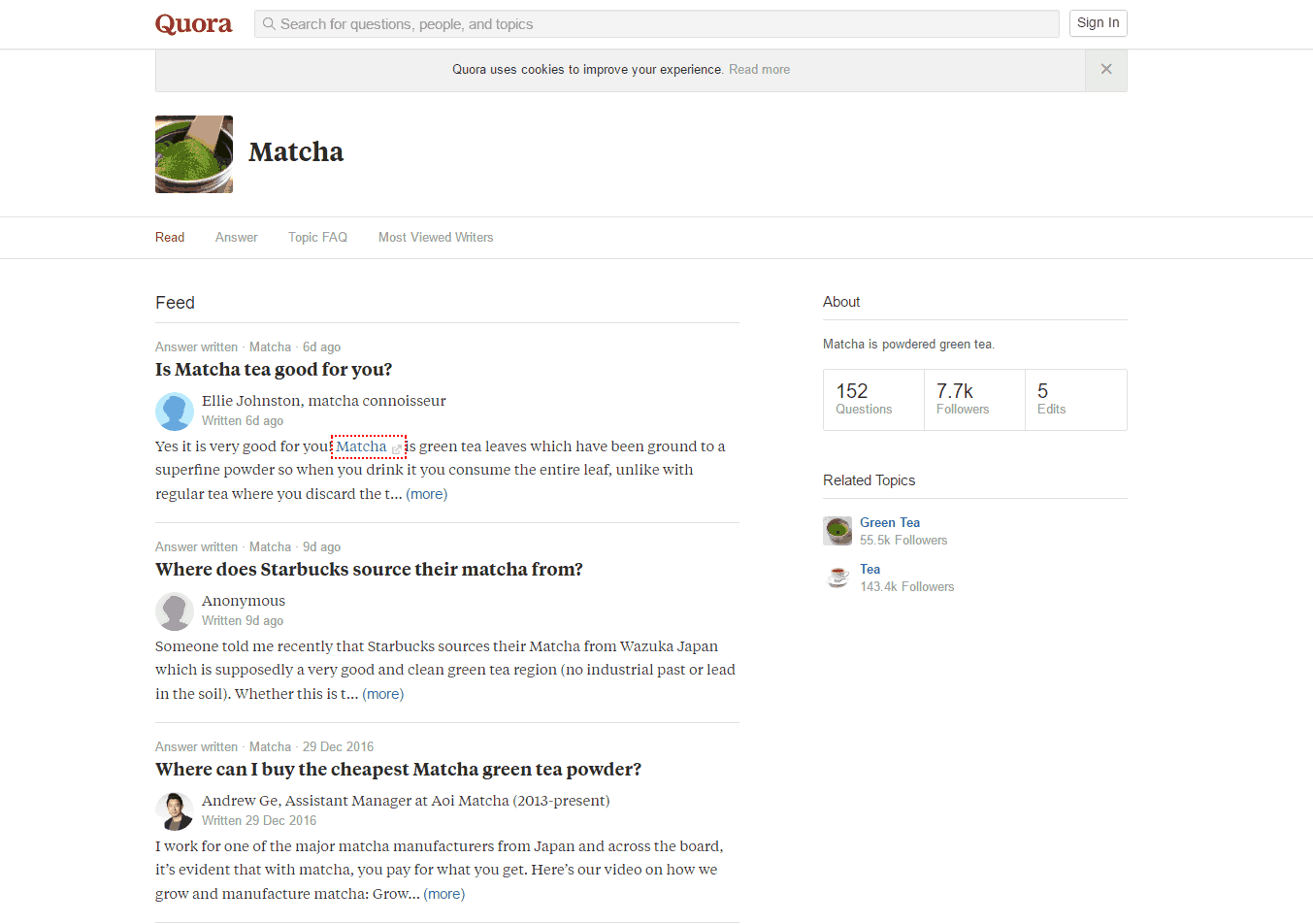Made a pact with yourself to up your game in 2020?
Start with a great niche.
Whether you’re a blogger, an affiliate marketer, an SEO, or an eCommerce guru (or all four) – you need to carve out your own little territory on the digital globe. Finding a profitable niche that you can monetize isn’t something that happens overnight. Amazon, Google Trends, social media, research white papers – there are plenty of places to look. Take advantage of the online marketplace to help guide your digital career.
A niche will make you more profitable and more successful as an online entrepreneur – here’s how you can find yours.
The simplest guide to choosing a perfect niche for blogging in 2020
1. Do Proper Research to Find the Niche
The #1 reason I put research in the first place in the list is because I know how important it is when choosing a niche for your website.
You need to know which niche is right for you based on your interests and the demand in the market.
- Don’t pick a niche just because you’re passionate about it – you’ll find it hard to make money from it.
- Don’t pick a niche without finding its profitability. There’s no way you can build a profitable business if there’s no market for it, right?
So if you’re wondering about how to do it right, here are the three steps you need to follow while doing research for your blogging niche:
#1. Get ideas:
Make a list of possible ideas for your business. While brainstorming for ideas, ask these 4 questions to yourself.
- What are your biggest passions and interests in life?
- What are your hobbies?
- Do you have any previous work experience that could potentially turn into a business?
- What kind of business you want to do? What is your dream business?
Take a notepad or memo function on your smartphone and write down anything that comes to mind. So that we can narrow down the list in just a moment.
#2. Pick up your top 3 to 5 niches:
Focus on the ideas that you would enjoy it as a business. Remember that you are going to spend a pretty good amount of time into this new venture.
So pick a topic that you are really passionate about. If you don’t enjoy the topic, you will lose motivation to work hard to make it a success. So, write down top 3 to 5 niches on the paper that really interests you.
#3. Determine its profit:
Now, it’s time to look at them closely and determine if there is profit potential. Most of your research can be done online.
You can do competitor research or you can also read top blogs (in your industry) to find out whether there are any income reports shared by bloggers. That’s the simplest way to determine the profitability of any niche.
Now, for each niche topic you chose, make sure you follow these steps to narrow down your niche.
Step 1: Search for keywords related to your niche: Search for the broad topic, as well as more specific aspects of that niche.
For example, let’s take fashion blog, you could search for “men’s fashion,” “women’s fashion,” “clothing and accessories,” and “silk thread bangles.”
Here, you are looking for a robust search results page. You need to look at the websites dedicated to the topic, articles written about the topic, blogs and other online businesses in that niche. If you find competition, then it is really good news.
It means there is a market interested and ready to buy.
If you don’t find any results for your topic, there probably aren’t many potential customers online.
Step 2: Perform extensive keyword research: Use the Google AdWords Keyword Planner. It is completely free just you need to sign up for AdWords. Again here search for those same keywords.
If you see above 10,000 searches per month for your “main” keyword and 50,000 total for the other related but more specific keywords then that’s usually a good indicator of a winning online business niche.
#1. Put your main keyword in the search box
#2. In the next window, it will show you the number of searches of that keyword

#3. See related keywords to get more idea about your keyword

Step 3: Check out Amazon. It is a great research tool, too. Here again, search for those same keywords as well as others related to your niche.
When I searched for cooking-related terms, there were a ton of results, thousands of cooking products. It is another great indicator that a cooking business will work well.

Here is our complete guide to find keywords which are easy to rank.
Step 4: Check affiliate marketing sites: Go to affiliate marketing sites like Clickbank. This particular site specializes in information products like ebooks. However, there are plenty of other affiliate sites out there.
Do a search for your niche.
If there are many products available, that means a ready market.

So, now you have a source for some of the first products you can sell to your online venture. As an affiliate, you will promote the products and get a commission on each sale.
It’s a great way to start up your Internet business because you don’t have to take the time to create your own products.
There is always plenty of competition. But, having so many other companies means there is a large market of customers ready to buy products in that niche.
2. Look for the Profitability in the Niche
Having a passion for the niche you select is very important.
But at the same time, choosing a niche that generates money is even more important. You need to ask yourself whether you are passionate about the niche that you are blogging or not as passion is a key factor for success.
To be honest, most of the bloggers don’t blog it as a hobby. A lot of them are in it to make a living, put food on the table, pay the bills and look after their families.
So, you need to question yourself whether the chosen niche is profitable or not. Analyze, what is the purpose of your blog? To make money or just a hobby?
To create a profitable blog, check out these factors:
- What are your resources?
- Is it possible to attract advertisers easily in this market?
- Are there any affiliate programs and CPA offers available?
- Are other bloggers who are in this niche making money?
- How good is the competition like?
Say, you love a topic and can write all day every day about it, but there is no money in it, then guess where you will be in a few months.
So, if it is the case like “Profitable niche, but don’t love writing about it” and “Love the topic, but no money in it”, then here is how you can check to determine whether your chosen niche is going to be profitable or not.
3. Check Affiliate Products in the Niche
You need to check if any affiliate schemes exist for your niche. With the help of plugins, you can check that.
If you had a specific plugin in mind you could check the vendor’s website, you will see a menu option labeled ‘Affiliates’ or ‘Partners’.
GeneratePress Theme – At the bottom of the page you can see the link for the affiliates program: There is also an affiliate page
WPX Hosting – At the bottom of the page you can see the link for the affiliates program: There is also an affiliate page.
For a general search why not go to the Affiliate Marketplace websites where plugins might be sold, like Clickbank, JVZoo, or ShareASale, etc.
If people are making money in your niche then it is highly likely that there is a profitable market out there.
- Check Alltop and find the top blogs in your chosen niche.
- Check each blog to see if and how they are monetizing it.
Remember; whatever you will be writing in your blog, it represents your own writing style and perspective. Some people will prefer to read your article more than another blogger writing on the same article.
So, you only have to do a Google search on a topic to see many articles exist with a different slant.
If you establish yourself as an expert in your chosen niche then there is the possibility to start selling your services or products. It’s another way to make money from your niche.
4. Use the SPY Tools for Niche Research
To help you in choosing your niche, here are the four tools that will help you in niche research.
- SEMrush: Apart from niche research, you can use it a lot to come up with blog post ideas too. It allows you to learn more about your competitors, find out what they’re ranking for and which keywords are being searched for.
- Long Tail Pro: You can add in as many seed keywords you like and set filters to pull out the best keywords. You can also see how popular search terms are with data pulled from Google and using the Moz API you can size up the competition for target keywords.
- Google Keyword Planner: It comes for absolutely free. This is part of Google Adwords which allows you to do keyword research.
- Google Trends: In order to get an idea of whether or not your niche is on the decline, or increasing in popularity, seeing historic trends for particular keywords is important. And you can check that with Google Trends for free.
Make a note of which topics you are passionate about, have expertise and which could be profitable. While choosing your niche, put a good amount of your thoughts into it. After all, it’s the one that you will be writing about for the next few years at least or maybe a lot longer.
5. Do Competitor Analysis
If you run an online business you probably spend a lot of time researching your potential customers. But, If you want to be #1 in your niche, then you should spend at least as much time researching your competitors as you do your customers.
Why?
Because your competitors can be a goldmine of information where you can know every aspect of your marketing and rocket your site to the top of Google.
You need to check for authoritative blogs and websites in your niche and also research what content competitors are publishing and where they are finding the most engagement. One of the simplest is to simply do some searches on Google to look at how many sites exist for keywords on your topic.
It will give you some indication on the ‘size’ of competition and it will identify some sites that you will want to be monitoring.
However, it takes too much of time. But here is the good thing.
With the right tools, you can perform an in-depth competitive analysis of your niche very easily.
You have already picked up 5 niche tools.
Identify competitors in each niche to know which is more profitable, how they are earning money, what type of content they are producing, what marketing strategies they are using and much more..
- Buzzsumo: Enter your competitor’s domain name and the tool instantly analyzes your competitor’s blog content. It displays the number of social shares for each of that website’s posts. The posts with the highest number of social shares are at the top of the list.
- SEMrush: It is an excellent tool that lets you enter your competitor’s’ names and get a list of the top 10 keywords driving traffic to them. You can also see the average monthly volume of searches for a given keyword combination.
- Moz: It ranks millions of websites and web pages using their proprietary ranking algorithm. Every website ranked has a number from 0 to 100. The higher the domain authority a site has, the more influential that website is online. It also ranks individual website pages and assigns page authority again using a rating from 0 to 100.
- Ahref: To get an idea about your competitors, pull some stats and metrics for each of our competitor’s domains. You can also use Ahrefs Domain Comparison tool to analyse 5 domains at once. You can know the overall competitiveness of a niche.
You need to spend a good amount of time to find and analyze competitor performance metrics. However, by using the right tools, you can make the process easier.
Researching your competitors is extremely important. When you know what is working for them, you can create your own content around similar topics.
6. Check Forums in Your Niche
Reading forums is one of the best ways to know more about your niche.
A forum is a place where people interact with each other and they ask many questions related to that niche.
So how to find those forums?
Just got to Google and type “your niche name + forum” e.g we will type “cooking + forum.“

So we will join these forums and see what people are discussing. let’s have a look at one of these search results.

If you enter any of these forum threads, you will see what people are discussing right now.

This practice will give you more terminology about your niche and more topic ideas to write on your blog.
7. Use Quora to Find Niche Content ideas + Promote Your Content
Quora is like Wikipedia on steroids. It’s is an absolute ideas goldmine for niche marketers and content creators. Founded in 2009, Quora has taken off recently; it’s even being cited as a source by major news sites.
Full of cool, scary, and real stuff, Quora is a brilliant place to do niche content research, and it’s also a fantastic promotional vehicle. Here is what you need to know about Quora:
- Quora is a very high traffic platform. Their frequent mailouts are part of their traffic-driving strategy, and by getting people to create accounts, they’ve been very successful at creating a sense of community (a major source of repeat web traffic).
- Quora is very #nofilter in terms of content – the quacky, the strange, and the disturbing can all be found on there.
How can you use Quora?
- Use Quora as an audience survey and content research tool.
- Create a blog roundup from Quora answers.
- Create a niche account to build credibility and drive traffic back to your site.
- Answer the right questions, and you might get exposure on big sites.
- Repurpose on-site content by answering questions and citing your own site/blog.

Here’s an example of Quora’s home page – it’s tailored, and entirely based on the topics you follow. Follow the right topics to get the most relevant questions and keep checking it on a regular basis to see what’s trending in your niche right now.
If you move fast and you’re the first to answer a question well, you will stand a better chance of being upvoted to the top.
Can’t see that much happening in your niche yet? Start asking and answering questions to get things going. It’s also a good idea to follow parallel niches and topics to find crossover content ideas.

Matcha is a topic that’s become a lot more popular recently – the Quora topic for matcha is a great place to see what’s happening in this new niche.
Especially for someone who is quite experienced in a niche, it’s a great insight into what might be on beginner’s minds (like the potential mix-up between mocha and matcha).
On the other hand, people are also keen to debunk any myths like the “2% matcha infusion”. Use the “Related Topics” to help you broaden the topics you follow – here you can see that both “Green Tea” and “Tea” have way more followers than “Matcha” (but those followers may be less committed).

Getting into the “Most Viewed Writers” for your niche is a fantastic way to set yourself up as an expert and educator. You can see that all the top writers have highlighted matcha in their profile, and most of them are matcha entrepreneurs and business owners.
By inserting a website URL right at the top your Quora profile, you can raise brand awareness instantly, even if people don’t click on your profile.
The niche “Top Questions” are a brilliant starting point for any content strategy. Perhaps they could form the basis of your email campaign?
Could you create an infographic that promises to answer everyone’s top matcha questions?

Your Quora profile is an invaluable place to market your own website. Fill in your profile with care – choose interesting images and words that keep people engaged and that provide an easy at-a-glance insight into what you do.
Link to different parts of your site and try to use a call-to-action that’s likely to excite people (and you can track any Quora click-throughs in Google Analytics).
On Quora, you can collect badges and credentials by answering niche questions – like Jack from TheTravelingProfessionals.com who has collected badges for tourism, backpacking, travel, etc.
Niche Research Hacks
So now that you’ve exhausted your own niche ideas and had a think about what niche strategies might work for you – where can you go to find new niche ideas?
Here’s where:
- Keyword research in your niche is super important – start with Google tools and free SEO ones like KWFinder. Need a process? Some niche keyword research tips here to get you started. There is no ‘wrong’ way to do this, but make sure you understand the basics of SEO.
- Amazon is the big one for product research and a great place to start for a lot of things thanks to their dominance of the search market, their nifty subcategories, and their book marketplace. Look at what’s trending on Amazon, what the best-sellers are in each category, and what products are being recommended to the user throughout the product discovery process. (Don’t go for any of the niches that have been popularized by Amazon success courses). Other places to do niche research: Clickbank, StumbleUpon, Alibaba, Flippa.
- Social media and Reddit are a research goldmine. Start with Twitter trends and hashtags and find the subreddit for your niche for content and product ideas. Instagram is also good for hashtags and influencers – what niches are people engaging with?
- Affiliate marketing groups and forums are a great place to share knowledge and spy on the competition. E-commerce platforms like Shopify have recently attracted the attention of niche sellers – there are loads of Shopify Facebook groups and forums to join.
- Blogs – often a new niche will emerge from a need identified by bloggers and other online micro-influencers. Forums and blogger groups are a great place to do service-led research.
- Google News and Google Trends might also throw up some interesting niche data.
Feasibility Study
It can be tempting to get carried away before testing out the feasibility of your niche. If you’ve established that there’s a market (a desire), you now have to figure out whether you can serve that market and profit from it. Here’s what to take into account in your feasibility studies:
- Margins and profitability – make sure this is something that you can monetize well, and that has good margins.
- Logistics – Shipping, and Fulfillment can be eCommerce headaches. Product dimensions can have a big impact on shipping costs – try to keep your products within the ideal dimensions (18 x 14 x 8 inches is the standard size for Amazon for example). Here are some more tips on finding the ideal Amazon product.
- Growth potential – how much can your business grow in the next two years?
- Startup costs – what is it going to take you to get set up? Where will the money come from?
- Timeframe – have you got the hours in the day to spare right now? How long will this realistically take you? Have you got the bandwidth to cope with this right now?
How to Create Awesome Niche Content
One of your biggest success metrics as a niche marketer is going to be how good you are at creating relevant niche content.
Content is absolutely essential for SEO, and it’s one of the core ways that you can start to build an engaged audience.
You will only be known as a niche expert if you can prove yourself by creating relevant content on a regular basis. (If you’re good enough, you can start to monetize off the back of your content pretty quick).
Not sure how to kick off your niche content career?
Here are some niche content production tips:
- Start with your keyword research: make sure that you cover all the core topics unearthed during your discovery phase. FAQs, resource pages, and in-depth articles are a natural way to increase thematic keywords.
- Use the community around you for content: collect content ideas and topics from audience surveys and social media polls. Some of the top-performing web content is user-generated and roundup-oriented which is super low maintenance for you (more on using Quora for roundups below).
- Be timely with your content: match it up with what’s going on around you and plan out content with a proper seasonal calendar. You don’t always want to be publishing content on the day of an event – plan a few weeks or months in advance.
- Be consistent with your content. By creating an expectation and a culture around your content, you’ll become part of people’s content consumption habits. A monthly column on a high traffic site is a great way to grow your readership away from your own domain.
- Thorough content is the best for search engines and users too. Go the extra mile and produce lengthy and in-depth guides, punctuated by short and snappy content that people are likely to share. Aim to be better than your competitors and learn from the people who are currently slaying it online.
One of the most important things to remember with content production is that you need to be constantly planning, testing, and refining your content. There’s no point in just throwing something up and hoping for the best – be strategic about content ROI. Here’s Neil Patel’s take on owning a new content niche.
Create a Legacy to Outrun Competitors
A faceless store and brand aren’t going to help sell your product or idea to the customer. One of the best ways to succeed is to get yourself out of the mindset of ‘niche marketer’ to ‘brand marketer.’ This will give you a more sustainable, long-term digital future.
- It doesn’t take that long to come up with a credible story or backstory to why you’re doing what you’re doing. Share your passions, and dare to bare a little.
- Branding isn’t expensive and complicated – it’s about genuine connections and a commitment to customers.
- By building a brand what may start as a niche side hustle, may quickly become a lucrative gig. Differentiate and put the hours in order to succeed.
Get down to it and find your niche today! What’s been the key to your online success so far?
Keep reading the article at Blog – Blogging Cage. The article was originally written by Gareth Simpson on 2020-02-15 21:48:00.
The article was hand-picked and curated for you by the Editorial Team of WP Archives.

